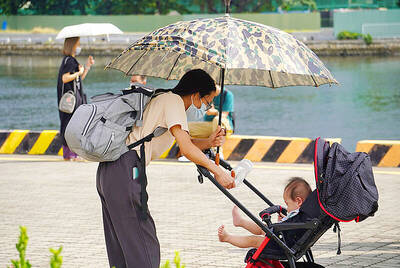The calls came out of the sky -- a reminder of the caller's love, a warning they may never return. And then silence.
Sobbing, flight attendant CeeCee Lyles called her husband at home in Florida on her cell phone, said her aunt, Mareya Schneider.
"She called him and let him know how much she loved him and the boys," Schneider said. People screamed in the background, Lyles said "we've been hijacked" and the phone went dead, Schneider said.
The plane she was on crashed south of Pittsburgh.
The phone rang at Alice Hoglan's home just before dawn in San Francisco Tuesday morning. It was her son, Mark Bingham, on that same United Airlines jet.
"Hi Mom ... I love you very much," he told her. "I'm calling you from the plane. We've been taken over. There are three men that say they have a bomb."
Others called from passenger jets that later crashed into the Pentagon and New York's World Trade Center.
Barbara Olson twice called her husband and described details of the hijacking, including that the attackers used knife-like instruments.
"She called from the plane while it was being hijacked. I wish it wasn't so but it is," her husband said. The jet she was on struck the Pentagon.
In New York, a Colombian waiter working in the World Trade Center made a last phone call to his brother from the 103rd floor minutes before the building collapsed.
"We are trapped. They can't rescue us and it's all full of smoke," Wilder Gomez Piedrahita said in a call from a mobile phone.
"We are sitting tight and can't get out," the 38-year-old waiter said again and again.
Clemant Lewin, a banker, said he looked from his window across the street from the towers and saw people jumping from the 80th floor.
A man and woman held hands as they plunged to the pavement.
"I'm traumatized for life," Lewin said. "This was somebody's father, this was somebody's sister, somebody's mother."

DEFENDING DEMOCRACY: Taiwan shares the same values as those that fought in WWII, and nations must unite to halt the expansion of a new authoritarian bloc, Lai said The government yesterday held a commemoration ceremony for Victory in Europe (V-E) Day, joining the rest of the world for the first time to mark the anniversary of the end of World War II in Europe. Taiwan honoring V-E Day signifies “our growing connections with the international community,” President William Lai (賴清德) said at a reception in Taipei on the 80th anniversary of V-E Day. One of the major lessons of World War II is that “authoritarianism and aggression lead only to slaughter, tragedy and greater inequality,” Lai said. Even more importantly, the war also taught people that “those who cherish peace cannot

Taiwanese Olympic badminton men’s doubles gold medalist Wang Chi-lin (王齊麟) and his new partner, Chiu Hsiang-chieh (邱相榤), clinched the men’s doubles title at the Yonex Taipei Open yesterday, becoming the second Taiwanese team to win a title in the tournament. Ranked 19th in the world, the Taiwanese duo defeated Kang Min-hyuk and Ki Dong-ju of South Korea 21-18, 21-15 in a pulsating 43-minute final to clinch their first doubles title after teaming up last year. Wang, the men’s doubles gold medalist at the 2020 and 2024 Olympics, partnered with Chiu in August last year after the retirement of his teammate Lee Yang

The Philippines yesterday criticized a “high-risk” maneuver by a Chinese vessel near the disputed Scarborough Shoal (Huangyan Island, 黃岩島) in a rare incident involving warships from the two navies. The Scarborough Shoal — a triangular chain of reefs and rocks in the contested South China Sea — has been a flash point between the countries since China seized it from the Philippines in 2012. Taiwan also claims the shoal. Monday’s encounter took place approximately 11.8 nautical miles (22km) southeast” of the Scarborough Shoal, the Philippine military said, during ongoing US-Philippine military exercises that Beijing has criticized as destabilizing. “The Chinese frigate BN 554 was

The number of births in Taiwan fell to an all-time monthly low last month, while the population declined for the 16th consecutive month, Ministry of the Interior data released on Friday showed. The number of newborns totaled 8,684, which is 704 births fewer than in March and the lowest monthly figure on record, the ministry said. That is equivalent to roughly one baby born every five minutes and an annual crude birthrate of 4.52 per 1,000 people, the ministry added. Meanwhile, 17,205 deaths were recorded, resulting in a natural population decrease of 8,521, the data showed. More people are also leaving Taiwan, with net